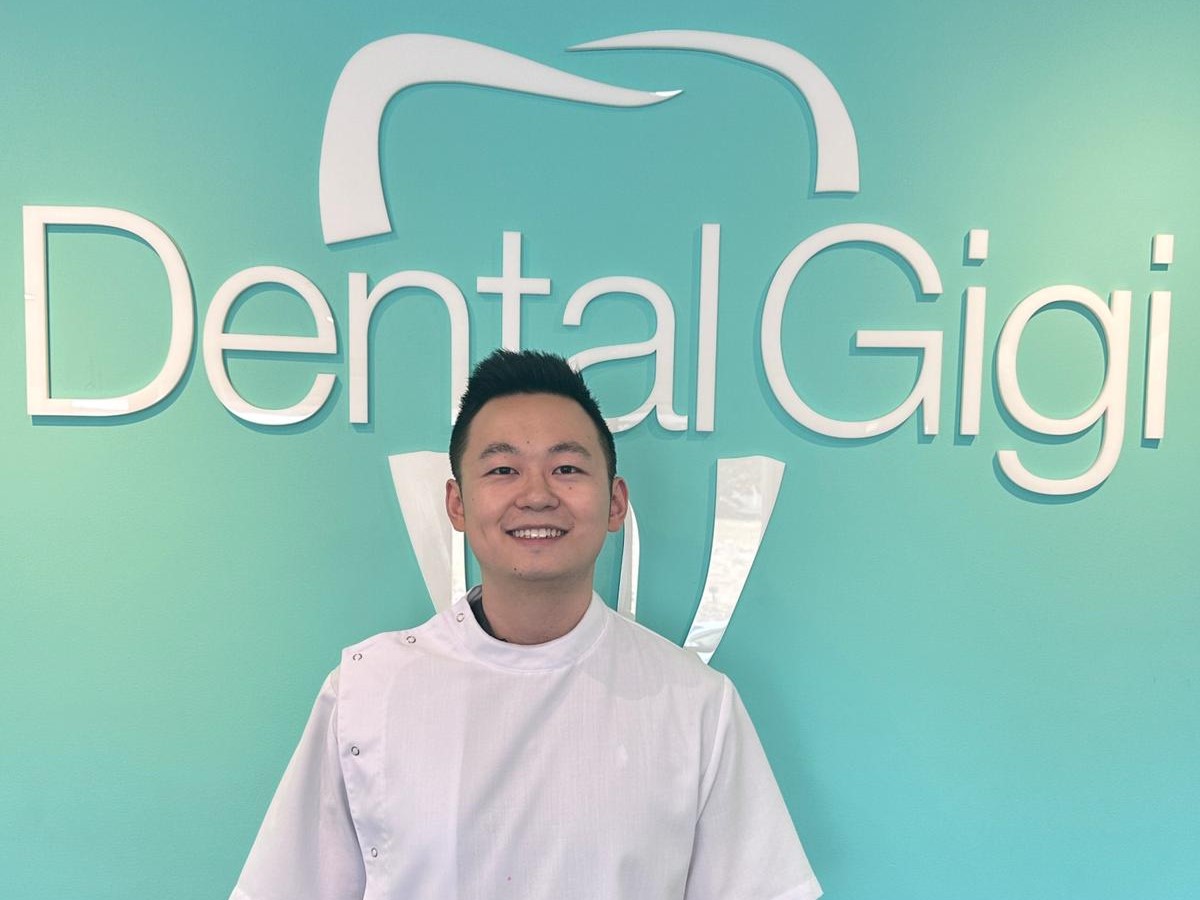Check-Up and Clean in Victoria Park

Our check-up and clean in Vic Park are offered at a competitive price, and we have over 11,000 satisfied patients to our name. We accept all health funds, and our experienced dentists deliver quality care and provide a comfortable dental experience.
What is included in the Value $199 Check-Up and Clean package?
- Comprehensive full mouth exam
- Full mouth scale and clean/debridement
- Fluoride treatment
- Treatment planning
We offer unparalleled value for dental treatments in Victoria Park.
chosen by over 11000 Happy patients.
MEET THE EXPERIENCED DENTISTS AT DENTAL GIGI
Frequently Asked Questions About Check-Up and Clean
Explore these FAQs to stay informed about the process and benefits of regular dental check-ups and cleans.
You should have a dental check-up every six months. Here’s why:
- Early Detection of Oral Health Issues:
Regular check-ups allow your dentist to identify problems early, such as tooth decay, gum disease, or even oral cancer. Early detection often means less invasive treatments and better outcomes. - Gum Health Monitoring:
Gum disease can develop without obvious symptoms. During check-ups, the dentist looks for signs of inflammation or infection in your gums. - Prevention of Costly Treatments:
Preventive care is key to identifying dental issues early and avoiding expensive treatments. For example, a small cavity addressed right away may only require a filling. However, if neglected, it could lead to the need for root canal therapy, which is a more complex procedure.
At Dental Gigi, a dental check-up is capped at $199. This price includes the following:
- Comprehensive Full Mouth Exam:
This involves a detailed evaluation of your entire mouth, including teeth, gums, and soft tissues, to identify any dental issues. - Full Mouth Scale and Clean:
A thorough cleaning removes plaque and tartar from the teeth and below the gumline, promoting healthier gums. - Fluoride Treatment:
A fluoride treatment aims to strengthen tooth enamel and provide protection against cavities and decay. - Treatment Planning:
A treatment plan outlines any necessary dental procedures based on your current oral health needs. - All Dental Records and Photos Available:
You get complete access to your dental records, including photos, to support ongoing treatment and monitoring of your oral health.
If you’re looking for a high-quality check-up and clean in Victoria Park, book an appointment with us today. Our dental team is dedicated to providing thorough, individualised care to keep your teeth and gums healthy
A comprehensive dental check-up is a vital part of maintaining good oral health. Here’s what is usually included:
- Oral Examination:
The dentist carefully examines your teeth, gums, and soft tissues for signs of cavities, gum disease, or other oral health issues. They also check for signs of oral cancer or any abnormalities in your mouth. - X-rays:
If necessary, X-rays are taken to detect issues not visible to the naked eye, such as cavities or impacted teeth. This step allows for early intervention before issues become severe. - Bite and Jaw Alignment Check:
Your bite and jaw alignment are checked for irregularities that might cause discomfort or uneven tooth wear over time. - Oral Hygiene Discussion:
The dentist will review your current dental hygiene habits and recommend improvements if necessary. They will provide oral health care tips, including advice on brushing and flossing. They will also discuss lifestyle factors, such as smoking or diet, which impact oral health. - Treatment Plan:
Based on the findings, a personalised care plan is created to address any concerns. This includes recommendations for future visits or treatments for long-term oral health.
It is generally recommended to get a scale and clean every six months as part of routine dental care. Here’s why it’s important:
- Plaque and Tartar Removal:
Even with consistent brushing and flossing, plaque can build up in hard-to-reach areas and harden into tartar over time. Tartar can only be removed by professional teeth cleaning, helping prevent cavities and gum disease. - Gum Disease Prevention:
Gum disease can develop without noticeable symptoms. Regular cleanings help remove bacteria and plaque below the gumline, reducing the risk of gingivitis and more serious conditions like periodontitis. - Stain Removal:
A professional clean can remove surface stains caused by foods, drinks, and lifestyle habits like smoking. It keeps your teeth looking brighter and healthier. - Fresh Breath:
Regular cleanings help remove bacteria that contribute to bad breath, promoting fresher breath.
A scale and clean is a professional dental procedure that involves the following:
- Scaling:
The dentist will use a hand or ultrasonic scaler to remove plaque and tartar from the surface of your teeth and hard-to-reach areas, such as between teeth. They also clean below the gumline, helping to prevent gum disease and tooth decay. - Flossing:
The dentist flosses between your teeth to remove any remaining debris. - Polishing:
Your teeth are polished using a paste that smooths the surfaces, helping to prevent plaque attachment. This step also enhances the appearance of your teeth, making them look shinier and healthier. - Fluoride Treatment (optional):
Fluoride may be applied to strengthen enamel and protect teeth against cavities.
A check-up and cleaning appointment usually takes 30 to 60 minutes. It can be quicker or longer depending on the following factors:
- Patient’s Oral Health Condition:
If the patient has healthy teeth and gums with minimal issues, the check-up will be faster. However, if the dentist identifies problems like cavities, gum inflammation, or signs of other diseases, more time will be needed. They will need to assess the issues and discuss potential treatment options with the patient. - Need for X-rays:
If the patient hasn’t had recent X-rays or is showing symptoms like pain, X-rays may be necessary. Taking and reviewing X-rays usually adds about 5 to 10 minutes to the appointment. - Amount of Deposits Present:
The extent of plaque and tartar buildup directly affects the time needed for cleaning. Patients with minimal buildup may only need 15 to 20 minutes for a scale and clean. However, those with more plaque or gum issues may require at least 30 minutes to clean the teeth and gumlines thoroughly. - Additional Treatments:
Optional treatments, such as fluoride applications, add a few minutes to the appointment. These contribute to better oral health and the prevention of future issues.
A check-up and cleaning is generally not painful. Some may experience mild discomfort during cleaning due to the vibrations from the scaler, the instrument used for cleaning, but this is usually temporary. Here’s what you can expect:
- Mild Discomfort:
During the scaling process, you may feel slight discomfort, especially if tartar has accumulated, but it is usually temporary. - Sensitive Gums:
Patients with gum sensitivity or inflammation may feel more discomfort as the dentist cleans below the gumline. This is more common in those with gum disease. - Numbing Options:
If pain is a concern, let your dentist know. They can apply a numbing gel or use gentler techniques to make the procedure more comfortable.
Yes, you can eat or drink before a dental check-up and cleaning, but brush your teeth afterwards. Here’s why:
- Freshen Your Breath:
Brushing after eating removes food particles and bacteria, creating a more pleasant experience for both you and the dentist. - Easier Examination:
A clean mouth allows the dentist to assess your teeth and gums more effectively without food debris obstructing the view. This helps provide a more accurate check-up and assessment. - Avoid Stain-Causing Food:
Avoid foods or drinks like berries or coffee before your appointment, as they can temporarily stain your teeth. These stains may affect the dentist’s view during the cleaning process.
For a capped price of $199, Dental Gigi offers professional teeth cleaning along with a full check-up. This all-inclusive package allows patients to have a thorough cleaning and examination at an affordable cost. Here are the inclusions:
- Comprehensive Exam:
This involves a thorough assessment of your teeth, gums, and mouth to identify any potential issues. - Scale and Clean:
The cleaning process removes plaque and tartar from hard-to-reach areas, helping to reduce the risk of developing cavities and gum disease. - Prophy Application:
Polishing smooths the surfaces of teeth to make it more difficult for plaque to accumulate, giving your teeth a cleaner, polished appearance. It involves applying prophy paste to the teeth and using a brush or rubber cone to polish them. - Fluoride Treatment:
Fluoride is applied to strengthen the enamel of your teeth. It offers extra protection against cavities and tooth decay after the procedure.
Schedule your next check-up and clean in Vic Park at our clinic. We offer comprehensive, patient-centred dental care to keep your teeth and gums in good condition.
You can help manage plaque at home with good oral hygiene practices. Here are some tips:
- Brush Twice a Day:
Use a soft-bristled toothbrush and fluoride toothpaste to brush for at least two minutes, focusing on all surfaces of your teeth. This helps remove plaque before it hardens into tartar. - Floss Daily:
Flossing reaches areas between your teeth that brushing can’t, removing food particles and plaque buildup in those tight spaces. - Use an Antibacterial Mouthwash:
Rinsing with an antibacterial mouthwash can kill bacteria that cause plaque, helping to reduce buildup throughout the day.
While these methods can help reduce plaque, regular dental visits are still necessary. As your reliable Victoria Park dentist, we offer thorough check-ups and professional teeth cleaning to keep your teeth and gums healthy. We help identify any potential problems early and provide the necessary care to maintain long-term oral health.
To maintain good dental hygiene between regular check-ups and cleanings, follow these key practices:
- Brush Properly:
As part of your dental hygiene routine, brush your teeth twice a day using fluoride toothpaste. Move in gentle, circular motions with the bristles pointed 45 degrees towards the gums to clean all tooth surfaces, including along the gumline. - Replace Your Toothbrush Regularly:
Change your toothbrush every three months or sooner if the bristles become frayed, as worn bristles are less effective at cleaning. - Stay Hydrated:
Drink lots of water to help wash away food particles and bacteria, keeping your mouth fresh and promoting saliva production. - Chew Sugar-Free Gum:
Chewing sugar-free gum helps stimulate saliva, which neutralises acids and washes away food particles. - Visit the Dentist as Recommended:
Keep up with regular check-ups and cleanings to identify potential issues early and maintain good oral health.
If you haven’t had a check-up in years, various oral health issues may have developed over time. These problems may require additional treatments to restore your oral health. Here are some common dental concerns and the corresponding treatments to address them:
- Plaque and Tartar Buildup:
Plaque is a soft deposit on teeth filled with bacteria. It can be removed through brushing, flossing, and regular dental cleanings. If not removed, plaque hardens into tartar, causing yellowish deposits, bad breath, and swollen gums. To remove it, a scale and clean or deep cleaning, also known as scaling and root planing, is necessary. - Unaddressed Cavities:
Cavities cause tooth sensitivity, pain while eating, and visible holes or dark spots on teeth. They are often caused by missing comprehensive dental check-up appointments, allowing decay to progress unnoticed. Fillings, crowns, or root canal treatments may be needed to restore the damaged teeth. - Gum Disease:
Gum disease is a condition caused by plaque buildup along and under the gumline, leading to inflammation and infection. Its symptoms include bleeding gums and bad breath. Eventually, it may lead to receding gums and loose teeth. Deep cleaning or more advanced gum disease treatments are needed to address these issues. - Tooth Wear or Damage:
Teeth grinding and clenching can cause chipped, cracked, or worn-down teeth and jaw pain. Bite guards or restorative treatments like crowns may be required to protect and restore affected teeth.







